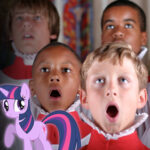In the realm of music history, opening a piece with a deep historical reference might seem unconventional, especially for a song aiming for contemporary relevance. Yet, “The World Turned Upside Down” masterfully defies this notion. This powerful track grabs your attention from the outset, plunging listeners into the heart of 17th-century England with the impactful line, “In 1649…”. This isn’t just a history lesson set to music; it’s a vibrant and pertinent narrative that resonates even today.
The song vividly recounts the story of the Diggers, a radical movement spearheaded by the visionary Gerard Winstanley. Amidst the revolutionary fervor of the English Civil War, they established an agricultural commune at St George’s Hill near Weybridge in Surrey, effectively challenging the land ownership norms of the time. This bold experiment, aiming to create a society where the land was a “common treasury,” was tragically short-lived, brutally suppressed by the established landowners. A glimpse of Winstanley and the Diggers’ story can be seen in this clip from the 1970s film “The World Turned Upside Down,” placing their struggle in a visual context.
Decades later, Billy Bragg resurrected the Diggers’ story and their anthem, “The World Turned Upside Down,” bringing it to a new generation. Bragg’s recording on his “Between the Wars” EP in 1985, released during the intense backdrop of the miners’ strike, gave the song renewed significance as a rallying cry for the left. This context of social struggle and resistance amplified the song’s message, connecting historical oppression with contemporary battles.
However, the song’s origin predates Bragg’s impactful rendition by a decade. Leon Rosselson, a songwriter deeply embedded in radical and satirical music since the 1960s, penned “The World Turned Upside Down” in 1975. The title itself is borrowed from Christopher Hill’s seminal work on radical 17th-century political and religious movements, highlighting the song’s intellectual and historical grounding. While Billy Bragg’s version is known for its fiery energy and punk-infused guitar, Rosselson’s original version adopts a gentler, folkier approach. It was Rosselson who skillfully wove Winstanley’s powerful words – advocating for the earth as ‘a common treasury for all’ – into the lyrical core of the song. The result is more than just a song; it’s a concise history lesson, an inspiring call to action, and a compelling piece of musical art.
Despite the immense popularity of Bragg’s cover, which reached No. 15 in the charts, Rosselson remained remarkably gracious. He acknowledged the song’s evolving identity, noting, ‘Some people think that it’s a folk song, or that it was written by Billy Bragg. Which is, I suppose, fame of a sort.’ This reflects the fascinating journey of the song, transcending its original authorship to become a shared cultural artifact.
Beyond Rosselson and Bragg, “The World Turned Upside Down” has been interpreted by numerous artists, including notable folk musicians like Roy Bailey (listen here) and Dick Gaughan (listen here). Rosselson and Bailey even collaborated on an early recording in 1975 with Martin Carthy, featured on the album “That’s Not The Way It’s Got To Be” (listen here). Even Chumbawamba, known for their eclectic and often political music, recorded a version (listen here), though their alteration of the lyric ‘we need no swords’ to ‘we take up swords’ sparked some debate with Rosselson. Interestingly, Rosselson’s own lyrics already carried a potent undertone of defiance with the lines ‘You poor take courage/ You rich take care.’
The historical location of the Diggers’ commune, St George’s Hill, underwent a stark transformation over centuries. By the 20th century, it evolved into an exclusive enclave, home to a golf course and luxury mansions for the wealthy. Notably, John Lennon acquired a house there, Kenwood, after the Beatles relocated southward from Liverpool. This connection to Lennon offers an intriguing perspective on “The World Turned Upside Down.”
One can draw a parallel between “The World Turned Upside Down” and a less saccharine, more historically grounded version of John Lennon’s “Imagine.” While “Imagine” invites listeners to contemplate a world without possessions or countries, Rosselson’s song, channeling Winstanley’s ethos, proclaims ‘All things in common, all people one.’ Both songs explore idealism, but “The World Turned Upside Down” distinguishes itself by celebrating historical figures who actively fought to realize their ideals. It’s a tribute to action and historical struggle, rather than just wishful thinking.
The line in “Imagine” about ‘… and no religion too’ has only gained more relevance over time. However, “The World Turned Upside Down,” rooted in an era where atheism was scarcely articulated, presents a more specific critique of religious institutions: ‘The clergy dazzle us with heaven/ Or they damn us into hell/ We will not worship the god they serve/ The god of greed who feeds the rich while poor men starve.’ This direct condemnation of religious hypocrisy and its role in social inequality adds a layer of sharp social commentary absent in “Imagine”‘s broader strokes.
While it would be tempting to imagine Lennon drawing inspiration from the history of his St George’s Hill estate when writing “Imagine,” it remains speculative and perhaps unlikely. (Adding to the geographical detail, the mansion featured in the “Imagine” video (watch here) isn’t Kenwood but Tittenhurst Park, Lennon’s later residence near Ascot.) Regardless of direct influences, the combined impact of Leon Rosselson and Billy Bragg has firmly cemented the Diggers’ legacy within popular culture through “The World Turned Upside Down.” As the song poignantly states, ‘They were dispersed but still the vision lingers on.’
In a contemporary context, the enduring power of “The World Turned Upside Down” is undeniable. Its themes of social justice, resistance against oppression, and the pursuit of a more equitable world continue to resonate deeply. Perhaps, instead of relying on conventional national anthems, a song like “The World Turned Upside Down,” with its stirring narrative of historical defiance and hope, offers a more compelling and thought-provoking soundtrack for our times. It serves as a potent reminder that the struggle for a better world is a continuous process, echoing through history and finding new voice in each generation.

